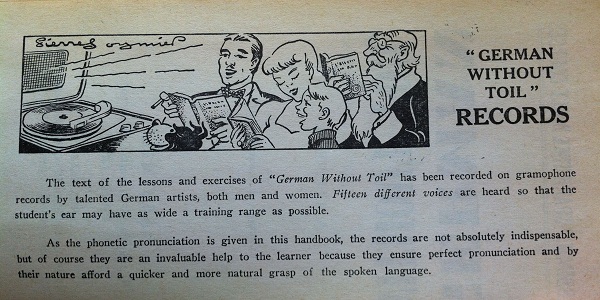
21/07/2015, by CLAS
Language learning – who, why, and how? Looking at answers from history
Language learning, who should do it, why, and how best to teach languages, are hot topics in British education today, where the shortage of language skills is well-known. But these are also questions that people have been reflecting on for many years, in Britain, Europe and beyond, and the answers that people have given have changed over time, too. (See my feature on how and why the reasons for learning German have changed over time for an example.)
An international network of scholars working on the History of Learning and Teaching Languages, first established by Richard Smith (Warwick) and me (German, University of Nottingham) with support from the Arts and Humanities Research Council (2012-2014), has been addressing these questions, and was recently featured in an online article published by the AHRC. The network’s most recent event was the first international conference ever held in the UK on the history of language learning in July last year, with additional generous support from Santander. Santander helped fund the attendance of selected speakers at the conference from India, China, Spain and Moldavia, as well as the attendance of ten UK PGCE students and practising teachers. The first publication of the research network appeared as an open access special issue of the journal Language & History. With overviews of the histories of learning and teaching French, German, Spanish, and English in Europe, the issue is essential reading for anyone interested in language learning in Europe. The papers from the July 2014 conference will appear in three volumes in the Legenda series (Maney/MHRA) in September 2016, and can be pre-ordered. The team’s activities have continued to grow into a flourishing network with a rolling programme of events until 2019 – see http://www.hollt.net/ for more details.
Research funded by a grant from Santander Universities in 2014.
No comments yet, fill out a comment to be the first

Leave a Reply